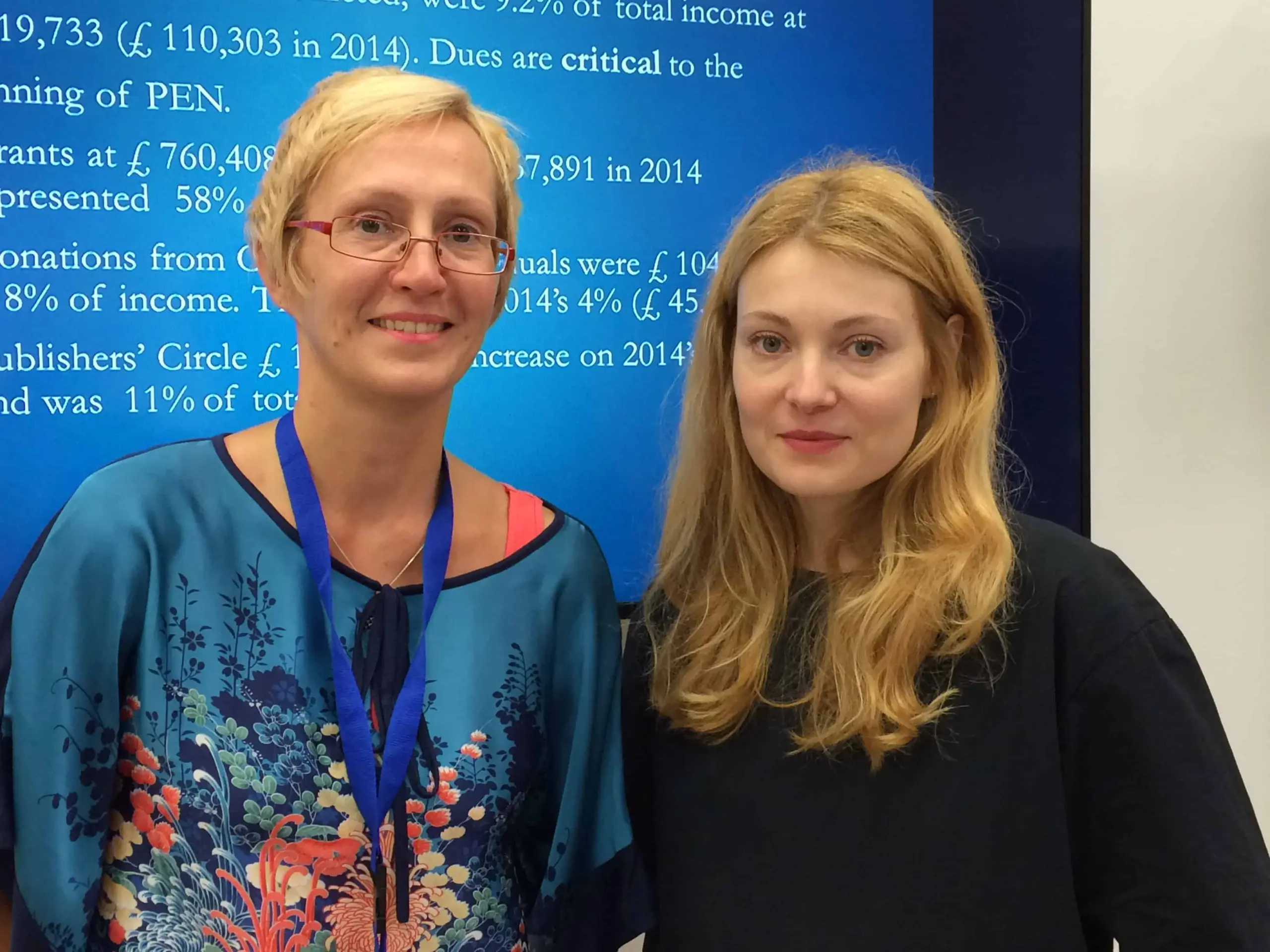Ahead of World Human Rights Day, PEN International reiterates its calls on the Chinese authorities to immediately and unconditionally release all writers, journalists, bloggers and publishers held for peacefully exercising their right to freedom of opinion, expression and association. The number of detained and imprisoned writers in China is among the highest in the world. PEN also calls on the authorities to ratify the International Covenant on Civil and Political Rights without further delay.
Take Action: Share on Facebook, Twitter and other social media
Send appeals to the Chinese authorities:
- Calling for the release of all writers, journalists and publishers imprisoned in violation of their right to freedom of expression in the People’s Republic of China;
- Urging the Chinese authorities to cease its harassment and persecution of members of the Independent Chinese PEN Centre, and lift all restrictions on their freedom to exit and enter mainland China, particularly to attend PEN International conferences and to return home;
- Calling on the Chinese authorities to end its practice of enforced disappearance and the use of forced confessions, which contravene an individual’s right to fair trial;
- Calling on them to ratify the International Covenant on Civil and Political Rights, which was signed by the People’s Republic of China in October 1998.
Send appeals to:
His Excellency Xi Jinping
President of the People’s Republic of China
State Council
Beijing 100032
P.R. China
Fax: +86 10 6238 1025
Salutation: Your Excellency
Send copies to the Embassy of the People’s Republic of China in your own country. Embassy addresses may be found here: Chinese embassies abroad
Please keep us informed of any action you take, including any responses you receive from the authorities.
Background
PEN International has for many years expressed concern about serious and sweeping restrictions on freedom of expression in China, including through resolutions adopted at its annual Congresses, most recently at its 82nd World Congress in October 2016.
The suppression of the right to freedom of expression in China remains an ongoing and critical concern. Recent crackdowns have taken place not only in Beijing, but in numerous inland and coastal provinces, the Autonomous Regions of Tibet, Xinjiang, and Inner Mongolia, and in the Hong Kong Special Administrative Region.
In 2015, the China section of PEN International’s Case List accounted for more than 25 per cent of all cases recorded in the Asia and the Pacific region. More specifically, PEN documented over 40 cases of writers held solely for their peaceful exercise of their right to freedom of expression, one of the highest numbers in the world. Many are held under vague national security provisions of the Criminal Law, including outspoken writer Zhang Haitao whose 19-year sentence for ‘inciting subversion of state power’ and ‘providing intelligence overseas’ was upheld by High People’s Court of Xinjiang Uyghur Autonomous Region on 28 November 2016.
At least eight members of the Independent Chinese PEN Centre (ICPC) are currently imprisoned or detained, still more face harassment for their activities. Among this number is Nobel Peace Laureate Liu Xiaobo, former President of ICPC, who remains in prison, serving an 11-year prison sentence, as a result of exercising his right to free expression. Meanwhile, Liu Xiaobo’s wife, renowned poet, artist and ICPC member Liu Xia continues to be held under house arrest in her Beijing apartment without charge or legal due process six years on.
PEN continues to monitor the case of veteran journalist and ICPC member, Gao Yu, who is currently under house arrest serving a five-year sentence for ‘leaking state secrets abroad’. According to reports, Gao Yu recently received notice of a temporary decision that she remain under house arrest having completed one year’s medical parole. She may be returned to prison at any time. While on medical parole, Gao Yu was subjected to persistent harassment in connection with her peaceful exercise of her free expression.
Most recently, PEN was dismayed to learn of the arrest of blogger, activist and ICPC member, Liu Yanli, on charges of criminal defamation. Liu was arrested on 26 September 2016 in connection with posts made on social media. The posts, mostly thought to have been copied from other media and shared on WeChat, are alleged to be critical of the ruling party leadership, past and present. According to ICPC, she is currently being held in Jingmen City Detention Centre.
On 15 January 2014, academic, economist and Uyghur PEN member Ilham Tohti was arrested at his home and held incommunicado. Tohti was convicted of ‘splittism’ on 23 September 2014 and sentenced to life imprisonment and confiscation of all his property. On 21 November 2014, Xinjiang’s high court rejected Tohti’s appeal against his conviction and upheld the life sentence. Tohti is this year’s recipient of the Martin Ennals Award, and an honorary member of PEN American Center, Danish PEN, and Japan PEN.
For more than 50 years, the authorities of People’s Republic of China have continued to crackdown on writers and activists in the Autonomous Region of Tibet, casting the net ever wider to include writers from Tibetan areas outside of the autonomous region. In 2015, PEN International recorded the persecution of 16 Tibetan writers on its annual Case List, accounting for some 18 per cent of all cases in the People’s Republic of China. They include Kunchok Tsephel Gopey Tsang, writer and editor of the Tibetan language website Chomei; and writer and monk, Gartse Jigme, both Honorary Members of the ICPC, who are imprisoned for their peaceful writings.
Increasingly, free expression has been suppressed not only in mainland China but in Hong Kong. In January 2016, British newspaper The Sunday Times reported that an internal Chinese Communist Party document had identified 14 publishing houses and 21 publications in Hong Kong to be “exterminated,” an alarming indication of China’s hostility towards free expression in Hong Kong and determination to stifle it.
Over the past year, five Hong Kong booksellers known for selling books banned on the mainland — Gui Minhai, Cheung Ji-Ping, Lam Wing-kee, Lee Bo, and Liu Por — disappeared from Hong Kong and Thailand under mysterious circumstances. Although four of the five men have subsequently returned to Hong Kong, publisher Gui Minhai, a member of ICPC, remains in mainland police custody. Gui Minhai disappeared from his holiday home in Thailand in October. There was no trace of him until he appeared on state-controlled TV in the People’s Republic of China three months later. In a televised ‘confession’, Gui claimed that he had voluntarily surrendered himself to the Chinese authorities over his supposed involvement in a fatal hit-and-run incident which took place in December 2003. Since then he has reportedly not had access legal counsel and no contact with his daughter. It is suspected that the true motivation behind his detention is for the distribution of banned books to mainland China. PEN International considers Gui Minhai to be a victim of enforced disappearance and to be detained in violation of Articles 9 and 19 International Covenant on Civil and Political Rights (ICCPR), to which China is a signatory.
As a signatory to the International Covenant on Civil and Political Rights, which provides for freedom of legitimate expression, the right not to be arbitrarily detained, the right to a fair trial and the right to leave one’s own country, China is obliged to ‘refrain from acts that would defeat or undermine the treaty’s objective and purpose.’

